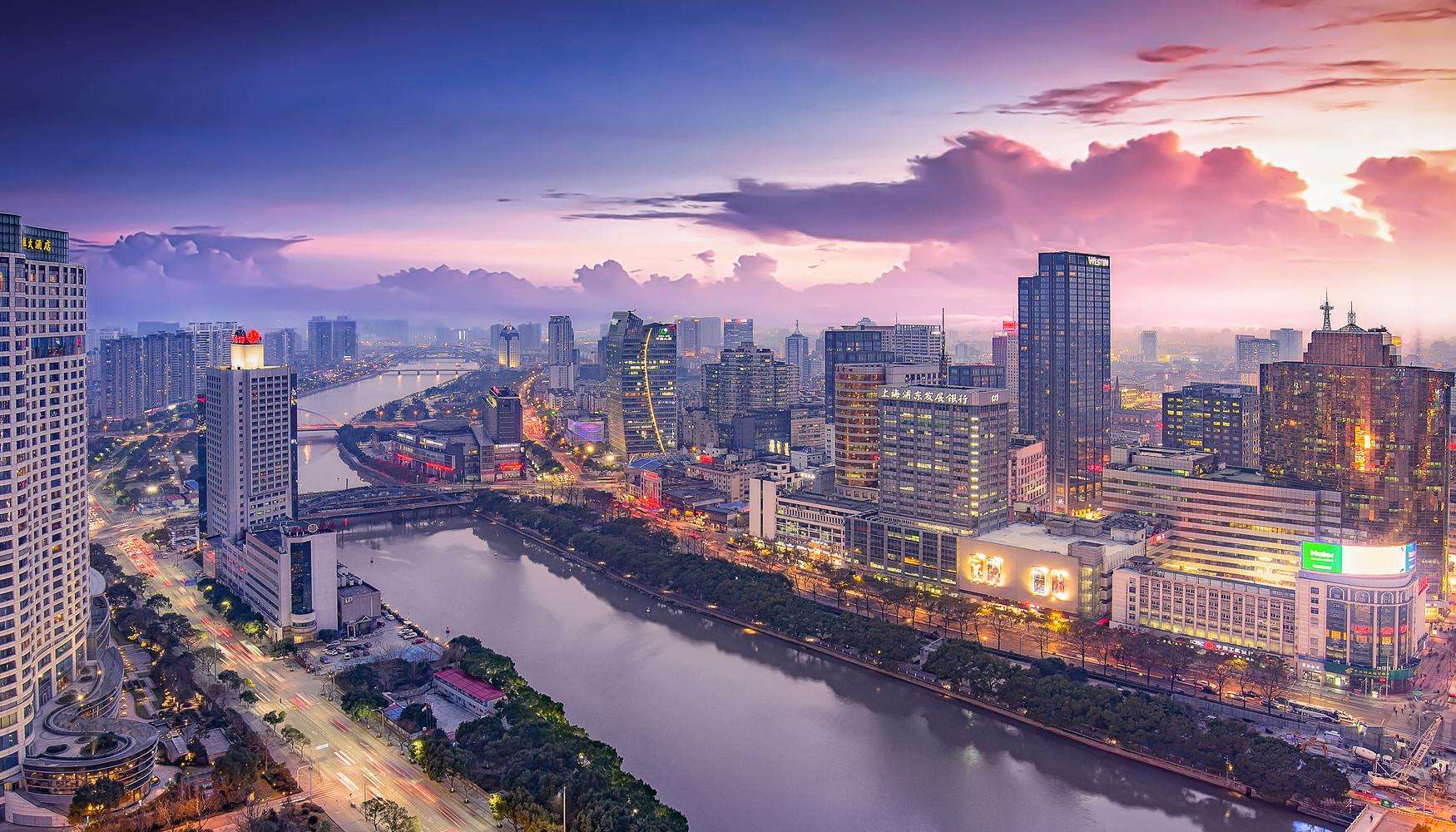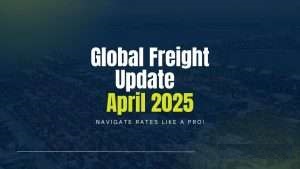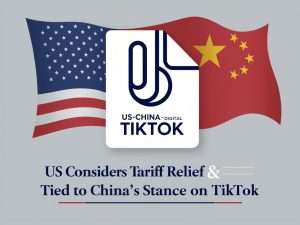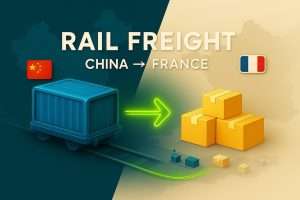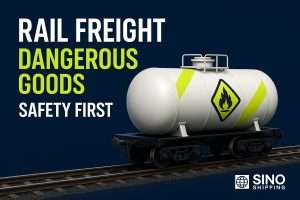Ningbo, one of China’s most vital port cities, stands as a powerhouse in global trade, connecting businesses to key markets worldwide. Renowned for its world-class infrastructure and strategic location in the Yangtze River Delta, Ningbo handles a staggering volume of imports and exports, supporting industries from electronics to textiles. For importers and exporters, understanding Ningbo’s unique advantages, challenges, and logistics solutions is crucial to unlocking its potential. This article dives into Ningbo’s key trade dynamics, offering actionable insights to help businesses navigate its bustling port and maximize their success.
Key Products Imported Through Ningbo
Ningbo is more than just a bustling port city—it’s a global gateway for some of the world’s most in-demand products. From cutting-edge electronics to essential raw materials, Ningbo connects businesses with the goods they need to thrive. Let’s explore what makes this port a cornerstone of international trade.

Why Ningbo Stands Out for Imports
With its state-of-the-art facilities and strategic location in the Yangtze River Delta, Ningbo has earned its place as one of the busiest ports globally. Its infrastructure and connectivity make it ideal for handling high volumes of diverse products, catering to industries ranging from technology to fashion.
What Products Flow Through Ningbo?
Ningbo is known for its versatility in handling a broad range of imports. Below are the key categories that dominate the port:
- Electronics: Components, devices, and equipment crucial for global tech manufacturing.
- Textiles: Fabrics and raw materials supporting the global apparel industry.
- Machinery: Industrial equipment, heavy machinery, and spare parts.
- Chemicals: Essential for industries like pharmaceuticals, plastics, and agriculture.
- Consumer Goods: From furniture to household appliances, these products meet global demand.
Industries That Rely on Ningbo
Many industries depend on Ningbo’s reliable import ecosystem. Some of the biggest players include:
Technology
Tech companies import critical components like semiconductors and batteries through Ningbo, ensuring they stay ahead in a competitive market.
Apparel
With its strong textile imports, Ningbo fuels the fashion industry, providing high-quality fabrics and raw materials to manufacturers worldwide.
Heavy Industry
Ningbo serves as a hub for importing specialized machinery, from CNC machines to industrial robots, enabling manufacturers to enhance productivity.
Major Export Destinations
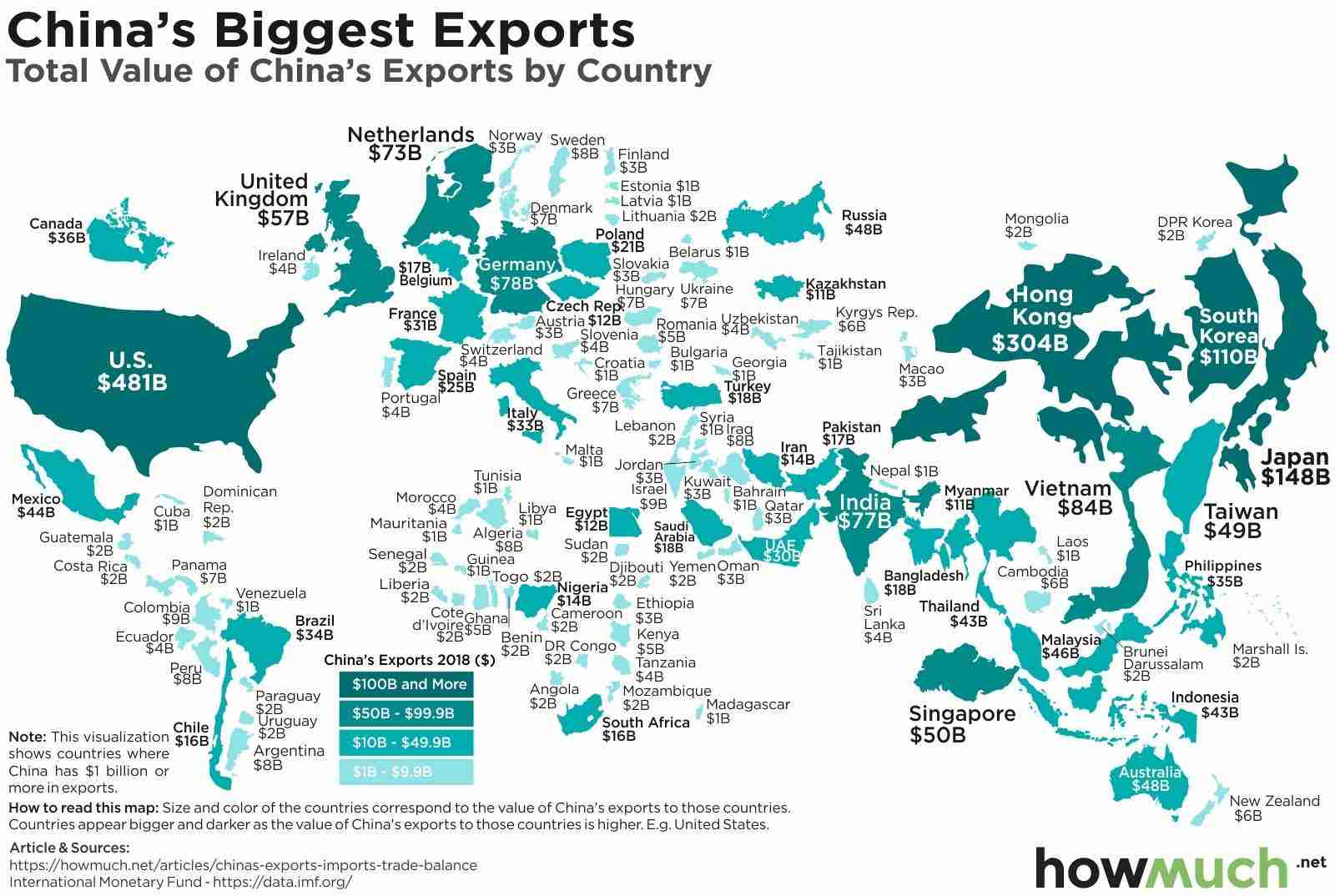
Ningbo is not just an import hub—it’s a global export powerhouse, connecting China’s goods to key markets worldwide. With its advanced port infrastructure and seamless logistics network, Ningbo plays a critical role in fueling international trade. Let’s dive into where Ningbo’s exports are headed and how it’s shaping global commerce.
Top Destinations for Ningbo’s Exports
Ningbo’s reach extends across continents, with exports flowing to some of the largest economies in the world. Below are the primary markets for goods shipped from Ningbo:
- United States: A top consumer of Chinese goods, importing electronics, machinery, and consumer products.
- European Union: Key markets include Germany, France, and Italy, primarily importing textiles, machinery, and automotive parts.
- ASEAN Countries: Growing trade partners importing a mix of electronics, raw materials, and consumer goods.
- Middle East: Increasing demand for industrial equipment and consumer products.
- Africa: A significant market for textiles, machinery, and construction materials.
Emerging Export Markets
While the USA and Europe dominate Ningbo’s export landscape, emerging markets are gaining traction:
- South America: Countries like Brazil and Chile are increasing imports of machinery and consumer goods.
- South Asia: India and Bangladesh are importing textiles and electronics at a growing rate.
- Eastern Europe: As these economies develop, demand for Chinese goods like machinery and household products is rising.
Growth of Trade Relationships
Ningbo’s success as an export hub isn’t just about its location—it’s about strong trade partnerships. Initiatives like the Belt and Road project and bilateral trade agreements have expanded Ningbo’s reach, creating new opportunities for exporters and importers alike.
Comparing Export Volumes
To better understand Ningbo’s global impact, here’s a comparison of export volumes by destination:
| Region | Main Products | Export Volume (TEUs) |
|---|---|---|
| United States | Electronics, machinery | 2,500,000+ |
| European Union | Textiles, machinery | 2,100,000+ |
| ASEAN | Raw materials, goods | 1,800,000+ |
| Middle East | Industrial equipment | 900,000+ |
| Africa | Construction materials | 700,000+ |
The Impact of Ningbo’s Exports
Ningbo’s export success is more than numbers—it drives global supply chains, supports regional economies, and fuels economic growth worldwide. Whether shipping electronics to Silicon Valley or textiles to Milan, Ningbo continues to set the standard for efficient, scalable trade.
If you’re looking to tap into these markets, understanding Ningbo’s export destinations is a critical first step to leveraging this global hub.
Economic Impact on Ningbo and Greater China
Ningbo isn’t just a port—it’s an economic engine driving growth across China. From its pivotal role in the Yangtze River Delta to its contributions to employment and GDP, Ningbo’s port activities ripple far beyond its city limits. Let’s break down how this global trade hub fuels China’s economic success.
Ningbo’s Contribution to China’s GDP
As one of the busiest ports in the world, Ningbo generates billions of dollars annually, contributing significantly to China’s GDP.
- Direct Impact: Revenue from port operations, logistics, and trade accounts for a large portion of Ningbo’s local economy.
- Indirect Impact: Industries reliant on the port—manufacturing, technology, and retail—amplify its economic influence.
By the Numbers
- 1 Trillion RMB+: The total annual trade volume handled by Ningbo port.
- 25% of China’s Container Trade: Managed through Ningbo, cementing its status as a trade leader.
Role in the Yangtze River Delta Economic Zone
Ningbo is a vital cog in the Yangtze River Delta, China’s most dynamic economic zone, which accounts for nearly 25% of the country’s GDP.
Strategic Advantages
- Connectivity: Ningbo links inland manufacturing hubs like Hangzhou and Nanjing to global markets.
- Specialized Trade: The port’s focus on high-value goods, like electronics and machinery, boosts the region’s export competitiveness.
- Infrastructure Synergy: Collaboration with Shanghai and Suzhou strengthens the entire Delta region’s trade ecosystem.
Employment and Industrial Growth
Ningbo’s port doesn’t just move goods—it creates jobs and drives industrial expansion.
Job Creation
- Direct Employment: Over 500,000 jobs in port operations, logistics, and transportation.
- Indirect Employment: Thousands more in industries like manufacturing, warehousing, and supply chain services.
Industrial Growth
- Ningbo’s thriving port supports:
- Manufacturing Hubs: Export-ready factories in nearby Zhejiang province.
- Tech Innovation: Logistics technologies developed to enhance port efficiency.
- SMEs: Small and medium enterprises leverage Ningbo’s port for global trade access.
Key Economic Highlights
Here are the key takeaways on Ningbo’s economic contributions:
- GDP Growth: Ningbo is a cornerstone of China’s economic strategy, driving trade worth trillions annually.
- Employment Generator: Hundreds of thousands of direct and indirect jobs stem from port activities.
- Regional Powerhouse: Ningbo’s integration with the Yangtze River Delta elevates China’s global trade position.
Ningbo is more than a port—it’s a catalyst for economic progress, not just for the city itself but for Greater China as a whole. Understanding its role in GDP, employment, and regional development is essential for anyone looking to leverage its advantages.
Transportation and Freight Forwarding
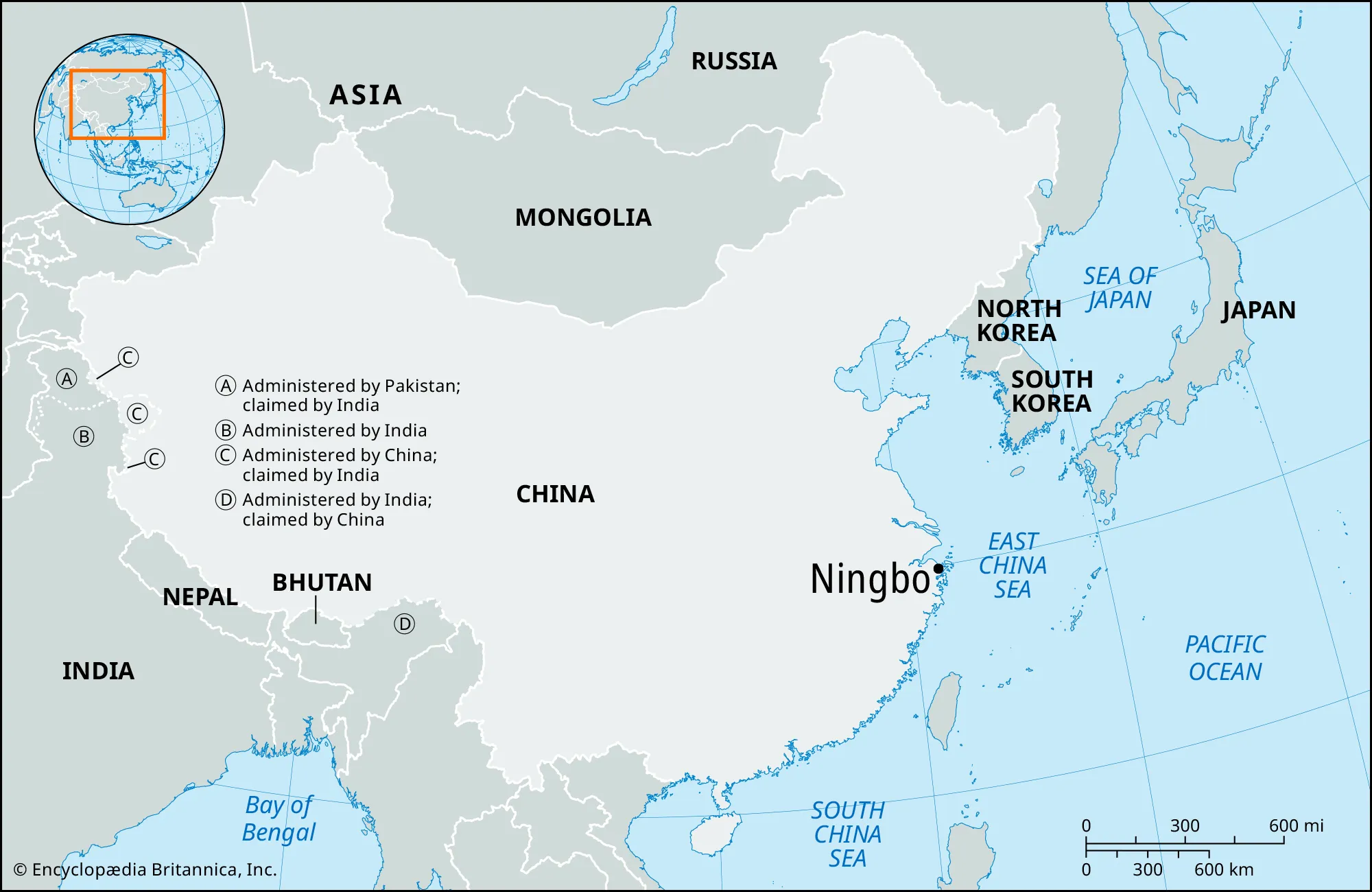
Ningbo is not just a port; it’s a logistics powerhouse seamlessly connecting China to the world. With its state-of-the-art infrastructure and multimodal transportation options, Ningbo ensures goods move efficiently across continents. Here’s how Ningbo’s transportation and freight forwarding systems create a global trade advantage.
Ningbo’s Port Infrastructure and Capacity
Ningbo boasts one of the largest and most advanced port facilities in the world. Its strategic location on the East China Sea and deep-water capacity make it a go-to hub for global shipping.
Key Features of Ningbo Port
- World-Class Terminals: Specialized facilities for containers, bulk cargo, and liquid freight.
- Deep-Water Access: Accommodates the largest container ships, with a depth of up to 22 meters.
- Unmatched Scale: Over 31 berths capable of handling vessels exceeding 100,000 tons.
- Record-Breaking Capacity: Processes over 30 million TEUs annually, making it one of the busiest ports globally.
Types of Shipping Services
Ningbo offers a diverse range of shipping services tailored to meet the needs of various industries:
- Containerized Freight: Dominating global trade with efficient loading and unloading systems.
- Bulk Cargo: Handling raw materials like coal, grain, and iron ore.
- Liquid Cargo: Specialized terminals for chemicals, oil, and LNG.
- Ro-Ro Shipping: Smooth operations for transporting vehicles and heavy equipment.
These services make Ningbo a versatile port capable of supporting industries from manufacturing to energy.
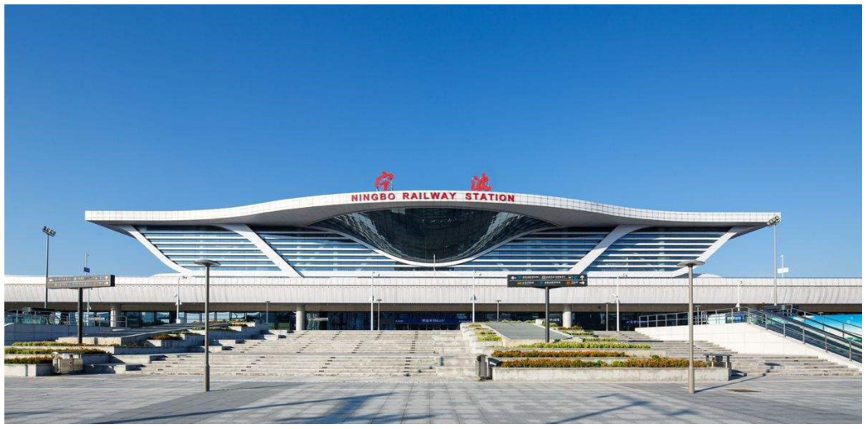
Multimodal Connectivity
Ningbo’s strength doesn’t end at the port—it’s a logistics hub with seamless connections to rail, road, and air networks.
Rail Connectivity
- High-Speed Freight Trains: Linking Ningbo to inland industrial hubs like Chengdu and Wuhan.
- Belt and Road Routes: Direct rail lines connecting Ningbo to Europe via Central Asia.
Road Connectivity
- Expressway Networks: Efficient highway systems connect Ningbo to neighboring cities like Hangzhou and Shanghai.
- Last-Mile Delivery: Advanced logistics networks streamline delivery across China.
Air Connectivity
- Ningbo Lishe International Airport: Facilitates air freight for high-value, time-sensitive goods.
- Proximity to Shanghai Pudong Airport: Expands access to international cargo routes.
Role of Freight Forwarders
Freight forwarders are the unsung heroes of global trade, ensuring goods move seamlessly across borders, especially in bustling hubs like Ningbo. With its high volume of shipments and complex logistics landscape, Ningbo relies heavily on the expertise of freight forwarders to keep trade efficient and compliant. Let’s explore why freight forwarders are indispensable for businesses leveraging Ningbo’s port.
Why Freight Forwarders Matter in Ningbo
Navigating the highly dynamic environment of Ningbo’s port requires local expertise and logistical precision. Freight forwarders act as the bridge between businesses and the intricate world of international shipping.
Key Roles of Freight Forwarders in Ningbo:
- Customs Clearance: Handling documentation, tariffs, and regulations to ensure smooth entry and exit of goods.
- Cargo Consolidation: Combining shipments to reduce costs and improve efficiency.
- Route Optimization: Identifying the fastest, most cost-effective routes using Ningbo’s multimodal transportation network.
- Compliance Management: Staying updated on regulations to avoid delays or fines.
- Risk Mitigation: Proactively addressing potential issues like port congestion or global trade disruptions.
Leveraging Local Expertise
Freight forwarders in Ningbo bring critical local knowledge, making them invaluable for navigating the port’s unique challenges.
Navigating Regulations
Ningbo’s port has specific rules and procedures that can be daunting for businesses unfamiliar with the region. Freight forwarders simplify this process by:
- Managing documentation requirements, such as bills of lading and certificates of origin.
- Ensuring compliance with import/export restrictions and standards.
Overcoming Operational Complexities
With its sheer size and activity, Ningbo can be overwhelming. Freight forwarders ensure:
- Timely Booking: Securing container space during peak seasons.
- Real-Time Updates: Providing visibility into cargo movement to prevent unexpected delays.
Value-Added Services Provided by Freight Forwarders
Modern freight forwarders do more than move goods—they offer end-to-end solutions that streamline the entire supply chain.
Key Services Include:
- Customs Brokerage: Ensuring goods clear customs without delays.
- Insurance Services: Protecting cargo against loss or damage.
- Warehousing Solutions: Offering storage options near Ningbo for flexible distribution.
- Packaging and Labeling: Meeting international standards for safe transport.
Why Freight Forwarders Are Essential
Without freight forwarders, businesses would face significant challenges navigating Ningbo’s fast-paced, high-volume operations. Here’s why they are critical:
- Efficiency: Streamlining processes to save time and money.
- Expertise: Ensuring compliance and minimizing risks.
- End-to-End Support: Handling everything from port documentation to last-mile delivery.
Partnering with a reliable freight forwarder isn’t just a convenience—it’s a competitive advantage. In Ningbo, where trade volumes are massive and regulations complex, freight forwarders provide the tools and expertise businesses need to succeed in global trade.
Challenges in the Import Sector
Importing through Ningbo can open doors to global opportunities, but it’s not without its challenges. From navigating port congestion to managing regulatory hurdles, businesses need to be prepared to tackle these obstacles head-on. Let’s break down the key issues importers face and how to overcome them.
Common Challenges for Importers
1. Port Congestion
As one of the busiest ports in the world, Ningbo often experiences bottlenecks, especially during peak seasons.
- High volumes of shipments can lead to delays in unloading and clearing cargo.
- Congestion can increase storage costs if goods remain stuck in port warehouses.
2. Regulatory Compliance
China’s strict import regulations require businesses to navigate a complex web of paperwork and procedures.
- Importers need to provide detailed documentation, including certificates of origin and product specifications.
- Changes in trade policies or tariffs can create unexpected compliance challenges.
3. Language and Cultural Barriers
For international businesses, understanding local practices and communicating with suppliers or authorities can be daunting without local expertise.
4. Freight Market Volatility
The global shipping industry is highly dynamic, and Ningbo is no exception:
- Freight rates can fluctuate due to fuel costs, trade policies, or seasonal demand.
- Container shortages can make securing space difficult and expensive.
Impacts of Global Trade Disruptions
Ningbo’s operations are also affected by external factors, including:
- Pandemics: COVID-19 exposed vulnerabilities in global supply chains, leading to shutdowns and backlogs.
- Geopolitical Tensions: Trade wars or sanctions can complicate imports, delay shipments, and increase costs.
- Natural Disasters: Typhoons or earthquakes can disrupt port activities, further delaying imports.
These disruptions emphasize the importance of proactive planning for businesses relying on Ningbo.
Strategies to Mitigate Risks
To navigate Ningbo’s challenges, importers can adopt the following strategies:
1. Partner with Reliable Freight Forwarders
Freight forwarders with expertise in Ningbo can help manage congestion, ensure regulatory compliance, and optimize shipping routes.
2. Use Technology for Supply Chain Visibility
Invest in real-time tracking tools to monitor cargo and anticipate delays.
3. Plan Ahead
- Avoid peak shipping seasons if possible.
- Secure container space well in advance to reduce last-minute surprises.
4. Diversify Shipping Options
Consider multimodal transportation—combining sea, rail, and road—to mitigate risks associated with port delays.
5. Stay Updated on Trade Policies
Regularly monitor changes in tariffs, quotas, and compliance requirements to avoid unexpected penalties.
Key Challenges for Importers Using Ningbo
Here’s a quick overview of the main obstacles importers face:
- Congestion: Delays in unloading and processing cargo.
- Regulatory Hurdles: Complex documentation and compliance requirements.
- Volatility: Fluctuating freight rates and container shortages.
- External Factors: Global disruptions like pandemics or natural disasters.
Turning Challenges Into Opportunities
While Ningbo presents its fair share of hurdles, businesses that anticipate challenges and adopt proactive strategies can turn these obstacles into opportunities. By staying informed, partnering with the right logistics experts, and leveraging technology, importers can navigate Ningbo’s complexities with confidence—and ensure their goods reach global markets efficiently.
FAQ: Ningbo and Its Role in Global Trade
Why is Ningbo considered a key global trade hub?
Ningbo’s strategic location in the Yangtze River Delta, combined with its deep-water port and advanced infrastructure, positions it as one of the most efficient and busiest ports globally. It serves as a vital link between Asia and major markets in Europe, the Americas, and the Middle East, handling millions of containers every year.
What are the main products imported through Ningbo?
Ningbo handles a wide range of imported goods, including electronics, textiles, and industrial machinery. These products play a crucial role in supporting global manufacturing and retail industries.
Which countries are the main export destinations from Ningbo?
Ningbo exports to many major markets, with the United States and the European Union being key destinations. Additionally, ASEAN countries, South America, and emerging markets like Africa increasingly rely on goods shipped from Ningbo.
What challenges do importers face when using Ningbo?
Importers often face challenges like port congestion during peak seasons, complex regulatory compliance requirements, and fluctuations in freight rates. These issues can impact delivery schedules and increase logistics costs.
How can businesses mitigate risks when importing or exporting through Ningbo?
Businesses can reduce risks by working with experienced freight forwarders, planning shipments well in advance, and diversifying their shipping options. Leveraging real-time tracking tools and staying informed about trade policies are also effective strategies.
What makes freight forwarders essential for businesses using Ningbo?
Freight forwarders are invaluable for navigating Ningbo’s busy port and regulatory environment. They handle customs clearance, optimize shipping routes, and consolidate cargo to streamline the logistics process and reduce costs.
How does Ningbo integrate with other transportation modes?
Ningbo boasts a robust multimodal network that includes rail connections to inland cities and Europe, expressways linking it to major urban centers like Shanghai, and access to air cargo through Ningbo Lishe International Airport and Shanghai Pudong Airport. This integration ensures smooth movement of goods domestically and internationally.
Can small businesses benefit from Ningbo’s port?
Yes, small businesses can take advantage of Ningbo’s infrastructure and services. Freight forwarders and cargo consolidation services make the port accessible for businesses of all sizes, allowing them to efficiently manage international trade.

